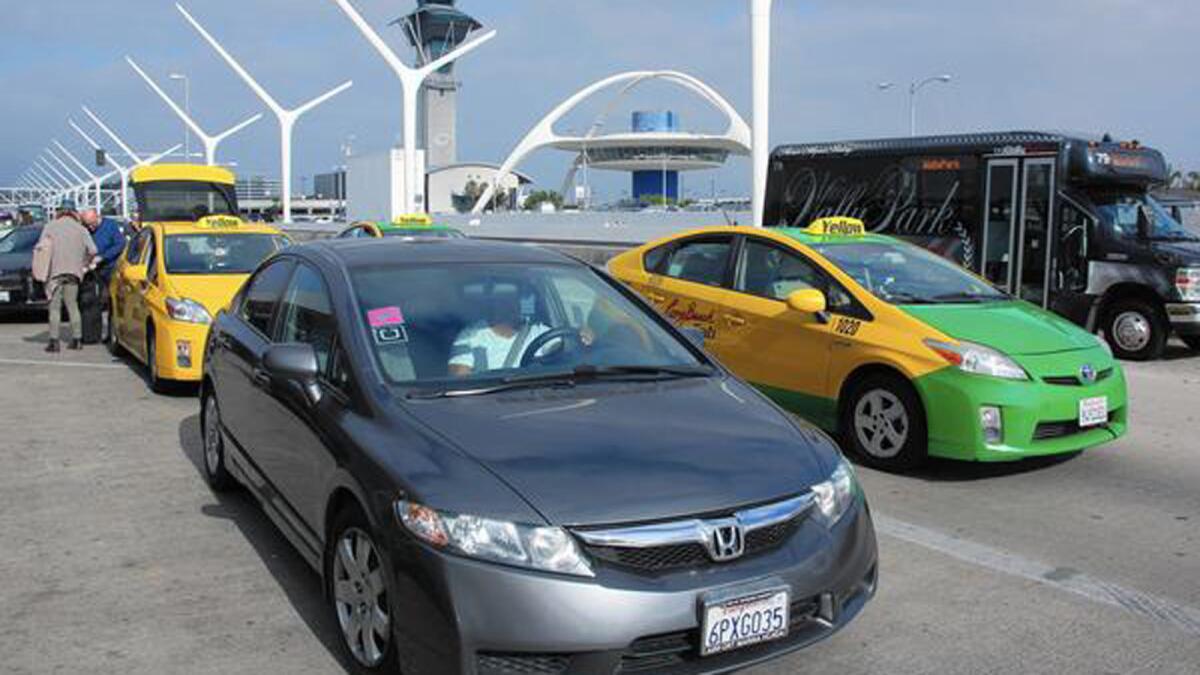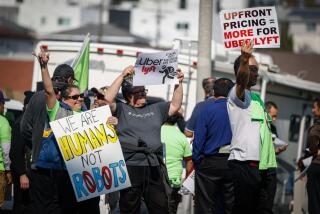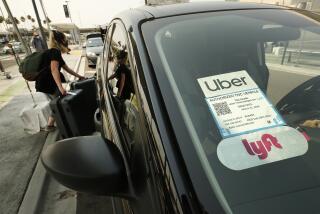Uber and Lyft cars become vector for racism amid coronavirus fears

As the deadly coronavirus spreads beyond China, the ensuing panic is inflaming bigotry against people of Asian descent around the world. One venue where that’s playing out is in the backseats of Uber and Lyft cars.
In interviews and online, customers and drivers of Asian descent reported a raft of complaints, including inappropriate comments or cancellations due to their appearance or name. An Asian American driver said the number of jobs available to her plummeted recently, and a customer said she was initially rejected for an airport pickup until a white friend explained to the driver they weren’t traveling from China. In online forums, the virus is a main topic of conversation among drivers.
The ride-hailing apps show drivers and riders the first name, usually accompanied by a picture, of the person they’re connected with before pickup. The companies have said the feature is designed for safety and ease of use, but it has for years been pointed out as a method for discrimination.
Racial profiling was a problem in taxis long before Uber existed. And today, the coronavirus outbreak is fueling claims of discrimination against Chinese people at schools in Europe and restaurants in South Korea. More than 28,000 infections and more than 550 deaths have been reported in about two dozen countries since the first case last month. The airborne virus is easily transmitted, and the risk is especially high in densely populated, confined environments, such as airplanes and vehicles.
Uber Technologies Inc. recently used its platform to try to help contain the spread of the virus. Uber said last week that a person in Mexico suspected of carrying the virus came in contact with two drivers. The company temporarily suspended the accounts of the infected customer, his drivers and about 240 passengers who rode in their cars afterward. Uber said it hasn’t received additional reports of infection since then.
Uber and Lyft Inc. said they have anti-discrimination policies and would remove a rider or driver from the system who was found to be in violation. They declined to comment on individual cases or disclose the number of discrimination claims filed with the companies.
Critics contend the companies aren’t doing enough to address discrimination. Caitlin Pascua, an Uber driver of Asian descent in the Los Angeles area, said that since the outbreak, she’s getting frequent cancellations, lower ratings and fewer tips from customers. Pascua said her earnings from food deliveries are less than half of what she was making before, and she’s often left with meals that have already been paid for but that customers refuse to receive. “On the way to the dropoff, they’ll show a profile picture of me, so they know who will be delivering their food,” Pascua said. “I guess that’s enough for people to judge.”
Dozens of posts on Twitter from Uber and Lyft customers contain allegations of discrimination. Lilian Wang, a tech industry employee, said on Sunday that a Lyft driver at San Francisco International Airport wouldn’t unlock his car door until her friend approached. The driver “asked if we’d arrived from China” and “noted that he had refused a ride to someone with an Asian-sounding name.” She described her experience on Twitter and in an interview with CNBC.
Posts on a private Facebook group popular with drivers describe precautions some are taking against the coronavirus. They include stocking cars with hand sanitizer and disinfectant wipes. Harry Campbell, author of the Rideshare Guy blog, said he suspects many drivers are bypassing people based on their ethnicity over fears of infection: “The feedback we’re getting from drivers is that their safety is paramount to a rider’s feelings and any potentially discriminatory issues.”






